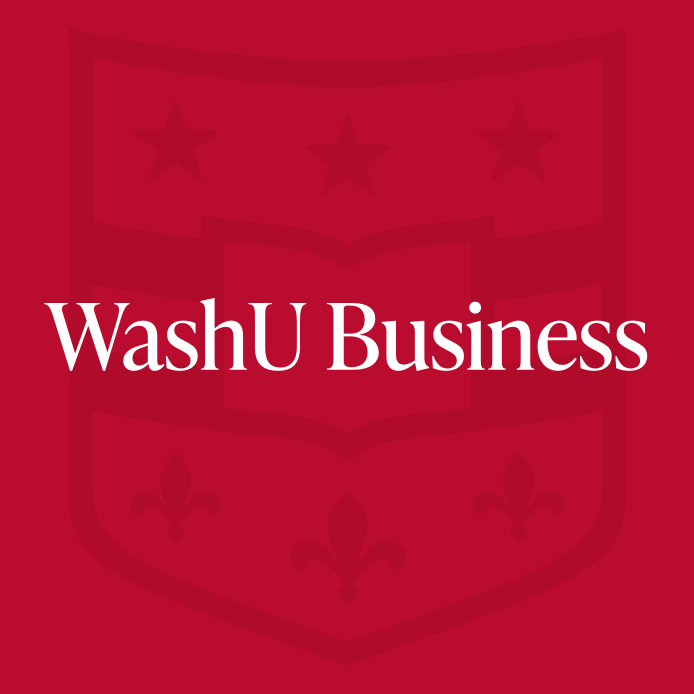The value of an MBA and its role in preparing you for today’s leadership challenges
- January 20, 2023
- By WashU Olin Business School
- 4 minute read

We know 2022 wasn’t the easiest year for business leaders. On paper, it was been a nightmare—from the Great Resignation to economic instability to the ongoing uncertainties of the pandemic. Leaders have had to navigate complex problems and adapt to new modes of working. However, while the recent past has presented challenges, it has also created incredible opportunities to lead.
How have recent challenges impacted leaders?
One of the main impacts of this tumultuous time has been a mass priority shift to address major concerns that were already on our radar but were magnified by the pandemic and the global events that followed. Priorities have shifted towards digitalization, talent retention, diversity and sustainability. And while these issues are taking up more room in leaders’ brains, the fight for sheer survival goes on as companies struggle to stay afloat, make supply chains work, and fulfill orders and obligations.
What does a business need from its leader right now?
First, a business leader needs the vision and ability to engage with the wider society. Today’s companies are judged by their ability to prioritize purpose and positively impact the world. Environmental, social and governance (ESG) standards have evolved enormously in recent years. Today, a business leader must practice values-based leadership. This requires a deep understanding of how the company affects the world around it, as well as how to turn that knowledge into a competitive edge.
Secondly, today’s managers need the ability and flexibility to cope with change and uncertainty. The era of exponential change is far from over; business leaders must know how to build resilient organizations and innovative business processes to survive and thrive in a constantly changing climate. Adapting to the remote-working mode, for example, and managing effectively in a virtual environment will be an ongoing challenge.
Lastly, a business leader must stay ahead of the technology game to successfully innovate and drive an organization forward. New technologies build economic value in an increasingly digital world, and the pandemic has highlighted how empowering remote and hybrid work can be in an uncertain time. Leaders who can leverage technologies like artificial intelligence and data science to make more effective decisions and foster a productive work environment will be best placed to weather the storms ahead.
These challenges have opened up opportunities for eager, ambitious leaders to evolve quickly. A landscape in which new obstacles are emerging daily is tough, but it also generates urgency and motivation for resilient organizations to learn, innovate and make positive changes.
What are the benefits of getting an MBA at this time?
An MBA program helps shape and educate leaders so that they are prepared for the world of tomorrow, to not only handle the challenges but also stay knowledgeable of the opportunities that can give their businesses competitive advantages.
The value of an MBA is heightened now, as we face massive leadership challenges. Here are just some of the ways effective global leadership and MBA value intertwine:
Developing responsible leaders.
A good business school can actively develop socially responsible leaders through scholarly research, teaching and outreach. Professors and members of the MBA program are busy devoting their research to sustainability-related issues in business, so students can benefit from all the practice-based managerial insights they generate.
One of the pillars of Olin’s MBA program is values-based, data-driven decision-making, and we even have a specific Values-Based and Data-Driven Decision-Making course, required for all students. Here, we show students how a values-based ethos can power a global perspective and drive business success while positively impacting the world.
Equipping students to make decisions amid uncertainty.
To navigate an ever-changing environment, business leaders need to master state-of-the-art decision tools and understand potential disruptions caused by new technologies. The value of an MBA is to equip students with practical coursework so that they can become experts in using analytical tools to make intelligent decisions and developing innovative solutions in today’s data-intensive business world.
Olin courses—both required and elective—are framed by the idea that we’re living in a digitally driven landscape, and that new technology will continue to offer up massive challenges and opportunities. As AI, 3D printing, big data, blockchain and cloud infrastructure continue to redefine the production and delivery of products and services, a new and evolved MBA is required.
Preparing to lead in a diverse and international environment.
The comprehensive curriculum of an MBA program will give students a holistic view of business organizations, including their complexity and the multifaceted challenges they may face. And while helping future leaders embrace holistic leadership principles internally, an MBA program also looks outward.
An internationalized MBA program like Olin’s provides a diverse, cross-cultural learning environment where students can develop the kinds of soft skills—like empathy, teamwork and communication—that will enable them to succeed in a global context. The world is shrinking. That’s why Olin’s Full-Time MBA emphasizes leading in a global context, connecting students to international business locations where they can spread their wings and test their learning on the ground.
With COVID-19 finally coming under control, it is time for business leaders to learn from the impacts of the pandemic, lead their organizations through the stages of recovery, and build strategic resilience for future uncertainties. Where there has been fear, there can now be hope as leaders expand their knowledge bases, acquire new skills and invent solutions to evolving problems.
Business leaders who have a growth mindset and can seize these learning opportunities will excel in tomorrow’s highly competitive and ever-changing business environment.
Pictured above: In 2019, first-year MBA students began their program abroad. Here, in Shanghai, they did field research in Chinese retail locations for a project emphasizing global business as part of the program.
Media inquiries
For assistance with media inquiries and to find faculty experts, please contact Washington University Marketing & Communications.
Monday–Friday, 8:30 to 5 p.m.
Sara Savat
Senior News Director, Business and Social Sciences
